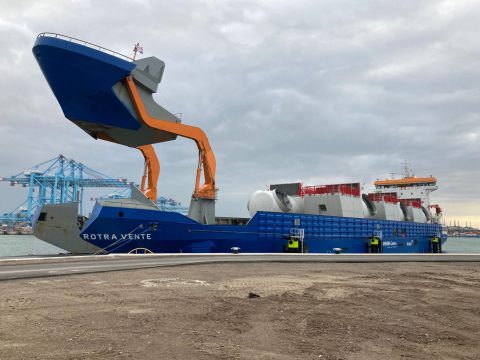
Dutch Lower House wants level playing field for offshore fleet
Rotra Vente in action Amasus
The Dutch House of Representatives asked the government to include offshore working vessels under the Dutch tonnage regime on Tuesday, 7 February 2023. The House majority supported a motion to this effect by MP Chris Stoffer (SGP).
Want to read more?
You have read all of your free premium articles for this month. Please become a subscriber to keep reading.
Subscribe now!
Take advantage of our exclusive offer to get full access to all premium content.





